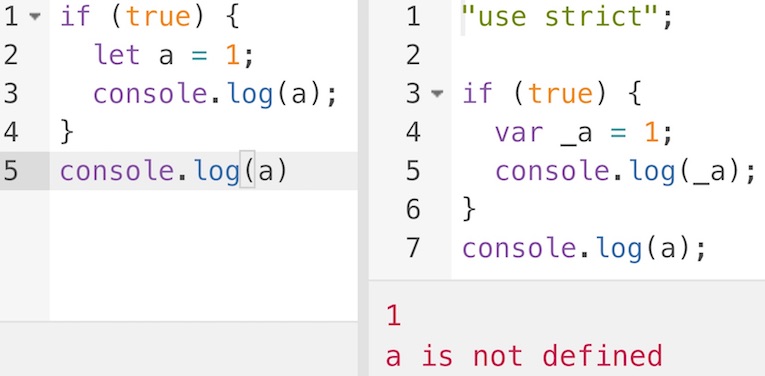‘let’ transpilation in Babel
TIL how Babel transpiles variables defined with let to their ES5 var equivalents, while still maintaining the same block scoping rules that apply to let.
Yesterday, during office hours, I was showing some students the Babel REPL. We were playing around with ES6 let variable definitions, and reviewing how unlike their var counterparts variables defined with let stay predictably scoped to the block in which they are defined.
I was interested to see how Babel would transpile let variable definitions to ES5 syntax. I created an if block and created a let variable inside of the body. My expectation was that the let variable should be scoped to the if body, and should be inaccessible outside of the block.

The transpilation seemed pretty predicatable here: until ES6, the only type of variable definition available was var, so the let inside of my if statement was simply transpiled to var. No magic here!
Check out what happened when I tried to reference the variable from outside of the if block, though:

Not only was the let transpiled to a var, but the transpiled variable name was changed to _a. Since the simple conversion of let to var would still make the variable accessible outside of the if block, Babel simulates the behavior of let by changing the name of the variable to make it inaccessible outside of the block.
My console.log statement inside of the block was also changed to match the new variable name, since it was in the same block as the let statement and should have access to the variable.
The implementation here makes sense: Babel emulates ES6 variable behaviors with ES5 syntax by modifying the name of variables defined with let. This name modification only appears to happen, though, if an attempt is made to reference a variable outside of its block scope.
Very cool!

Comments